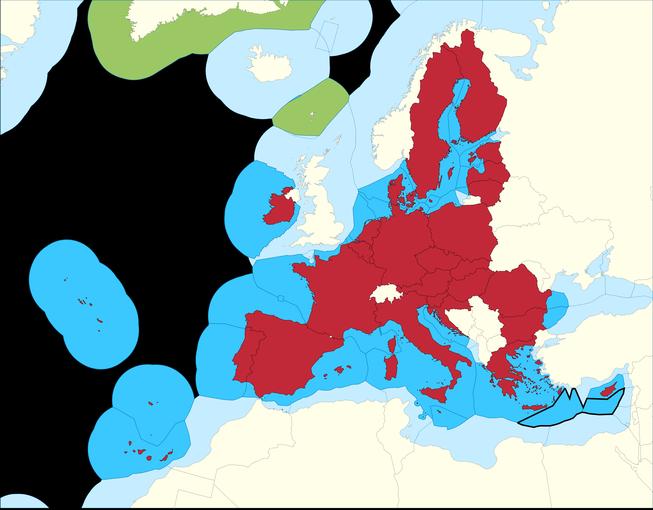history
January 1, 1994, by the European Community and the 12 countries of the European Free Trade Association 7 countries Austria, Finland, Iceland, Norway and Sweden, the composition of the five countries in the world today the largest free trade zone - the European economic area was established. The birth of the European Economic Area not only changed the relationship between the European Community and the European Free Trade Association, as well as Western Europe and the United world economy had a significant impact.
European Community and the European Free Trade Association envisage establishing the European Economic Area began in 1984, but until June 1990 the two sides began formal negotiations. Decisions on issues of common fishing area, transit vans and common development funds, major differences of the two sides once the negotiations deadlock several times. But for common interests, the two sides eventually reached a compromise, and on May 2, 1992 signed the agreement establishing the European Economic Area in Porto, Portugal. The present agreement shall enter into force on January 1, 1993, but appeared twists and turns in the process of ratification.

1992 Nian 12 6, Switzerland held a referendum on the ratification of the results due to the 50.3% of the Swiss population rejected the opposition to join the European Economic Area. In view of the special relationship between Liechtenstein and Switzerland on the judicial and administrative, Switzerland, Liechtenstein can not veto the accession to the European Economic Area, resulting in EEA countries from the original 19 down to 17 countries. Switzerland's veto not only makes the delayed entry into force of the EEA Agreement, it also brings a series of specific problems, the most important thing is how to fill the Yin Ruishi exit caused by a shortage of funds and common development. The original agreement, the European Free Trade Association countries, the European Southern Economic Area should provide 2 billion less developed European Currency Unit Development Fund, of which Switzerland should bear 27% of the total amount. After several months of consultations, the EC and EFTA signed by both parties on March 17, 1993 once again "Supplementary Agreement on the European Economic Area," the original treaty was supplemented and partially modified by taking the fund to reduce loan interest subsidy way, clearing the way for the establishment of the European economic area. Because of these details, the establishment of the European Economic Area was delayed for a whole year.
free
According to the European Economic Area and the EU advocate the establishment of four freedoms: of goods, persons, services and capital can flow freely within the European Economic Area. Free to trade, but must comply with EU law among the majority of members of the European Economic Area and EU member states. European Economic Area in the decision-making process in the EU has little influence. Members of the European Economic Area without incurring expenses related to the EU, but will actually make expenditures for the integration of Europe.
legislation
non-EU members of the European Economic Area and the EU agreed to develop a similar law, including social policy, consumer protection, environment, company law and statistics.
three members of the European Economic Area which has no representative in the European Parliament, the European Commission and other EU institutions.
agency
members of the European Economic Area and the European Commission to form a joint committee to discuss how the function is the relevant EU legislation extended to non-EU countries. The EEA Council meets twice a year to review the overall relationship between the members of the European Economic Area.
European Economic Area are not covered by all the members of the permanent establishment, the activities of the European Economic Area consists of the European Free Trade Association Commission (EFTA Surveillance Authority) and the European Free Trade Association court (EFTA Court) management, two It is similar to the EU's European Commission and the European Court of Justice.
